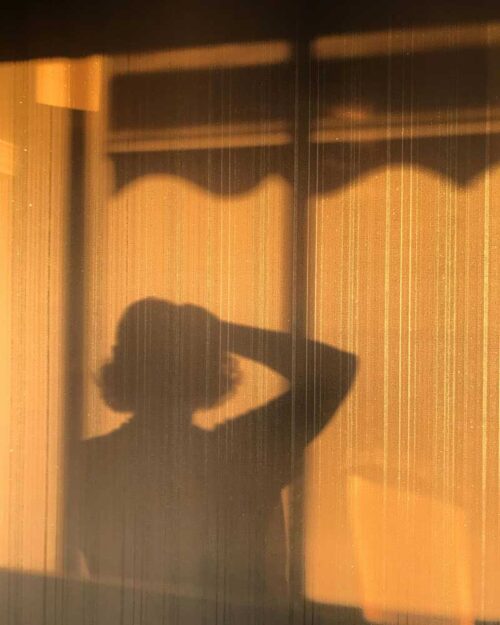
Second Chances
The room was tiny and austerely furnished with two chairs, a table, and a cheap worn carpet. It was a dark icy midwinter Chicago afternoon, and my patient Susan was dressed in a halter top and low-slung jeans. A coat with a faux-fur collar was draped casually over her shoulders.
“You’re not pregnant, so that’s good,” I said. She shrugged, not registering the relief I expected. As a peer counselor and educator in the teen clinic, I wasn’t typically involved in any aspect of pregnancy testing or counseling. But that night we were short-staffed, and when another young woman, devastated by the news of her pregnancy, required more than the usual amount of attention, the social worker handed me a chart.
“I see no harm in giving her positive news. Just see that she understands how to use the birth control we’ve prescribed.” The social worker, Kathy, was young and unbelievably cool and, like several other women at Planned Parenthood, had become a mentor and protector.
In those days pregnancy tests were complicated. They took over a week to process, and results were conveyed in person to avoid any breach of privacy.
Susan squinted at me. “How’d you get this job?” I was dressed in straight-legged jeans and Earth shoes and wore little makeup. I knew I looked too young to inspire the confidence I was trying to convey.
I shrugged, feeling a little uncomfortable. “A teacher told me about it. I’m interested in counseling.”
I was a junior at an academically rigorous high school. Community service was encouraged, and when my biology instructor told me about a volunteer opportunity at the clinic, I jumped at the chance. Planned Parenthood correctly believed that girls of a similar age could better understand each other’s concerns.
By all rights I shouldn’t have been in this position. I had just ducked under the razor wire of the most harrowing time of my life. I would see this only in retrospect. The convent school I had attended for nine years had summarily dismissed me for truancy and failing two classes. This new school had miraculously offered me admission despite my abysmal academic career. I had not yet heard the term “acting out,” but I knew my behavior was complicated. This school was my second chance.
“You didn’t really want to be pregnant, did you?” I asked, looking up as I slid a packet of birth control pills across the desk.
“Wouldn’t matter. My boyfriend said he’d take care of it. And me.” She smiled and slid the pills back.
“You would probably have to leave school if you got pregnant,” I said. Again she shrugged.
I motioned toward a basket of condoms.
She laughed. “I don’t know who you’re fucking, but my boyfriend wouldn’t touch those with a ten-foot pole.”
I flushed. “Then don’t sleep with him until he does. I’m guessing that’ll change his mind,” I blurted. But her wariness melted into a conspiratorial smile.
Predictably, this job did not please my mother, and I was surprised she did not resist my participation more. She and I had chafed for years. I resisted her mores, aligned as they were with the Catholic church I was fleeing. Early in my freshman year, she had been diagnosed with multiple sclerosis. In the wake of her diagnosis, she seemed to forfeit the forward trajectory of her life and yielded completely to the disease, disappearing step by step into her misery. In a moment of weakness, my father confided that she was unlikely to live to see me graduate from high school. I couldn’t believe she might die. In the cold reality of life without a mother, I disconnected from my family and sought solace elsewhere.
At the clinic, I became part of a lively swirl of women who provided me with the guidance and intimacy I lacked at home. They were my family as my family became increasingly unavailable. Women ran the show. It was a heady time. It was 1974, the Roe v. Wade decision just made abortion legal, and an earlier state law gave teenagers free access to reproductive health services. There was enough funding to never turn anyone away for lack of money.
The first edition of Our Bodies, Ourselves sat on the counter in the front office where I answered phones and scheduled appointments. I read it cover to cover, then started again from the beginning. In its pages I found a world in which bodies weren’t shameful and where women had agency. I would be among the first generation to fully control their reproductive destiny. But more than that, I found that my future wasn’t predetermined by biology, religion, parental expectations, or past misdeeds. My life was my own; my autonomy was declared inviolable. I knew I was obligated to pass this gift on.
I leaned across the table. “Listen, you’ve been granted a reprieve. Use it. Finish school. Sleep with whoever you wish; just do it safely and take control of your life.”
Susan reached for the packet of pills. I slid a handful of condoms across the table. She smiled and stuffed them into her coat pocket.
- Delia Kostner, PhD, is a psychologist and psychoanalyst in private practice in Amherst, New Hampshire. She completed her psychoanalytic training at the PINE Psychoanalytic Institute and is currently a faculty member at the Boston Psychoanalytic Society and Institute. Her research and writing interests currently encompass what psychoanalysis has to teach us about our current environmental crises. She is co-editor of an upcoming volume Climate and Beyond in the Consulting Room. She is an amateur naturalist and avid outdoors person who spends much of her free time hiking and exploring the hills and mountains near her home.
-
Email: deliakostner@gmail.com
ROOM is entirely dependent upon reader support. Please consider helping ROOM today with a tax-deductible donation. Any amount is deeply appreciated. |





